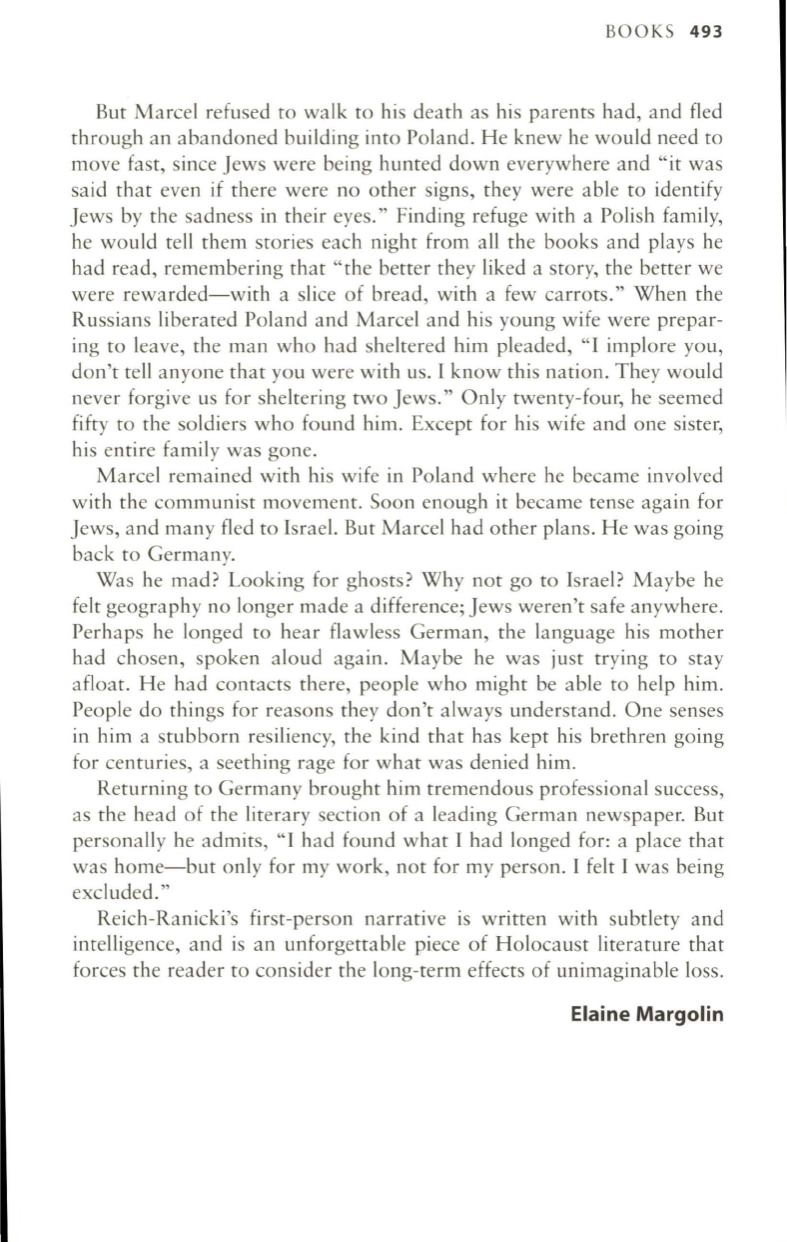
BOOKS
493
But Marcel refused to walk to his death as his parents had, and fled
through an abandoned building into Poland. He knew he would need to
move fast, since Jews were being hunted down everywhere and "it was
said that even if there were no other signs, they were able to identify
Jews by the sadness in their eyes." Finding refuge with a Polish family,
he would tell them stories each night from all the books and plays he
had read, remembering that "the better they liked a story, the better we
were rewarded-with a slice of bread, with a few carrots." When the
Russians liberated Poland and Marcel and his young wife were prepar–
ing to leave, the man who had sheltered him pleaded, "I implore you,
don't tell anyone that you were with us. I know this nation. They would
never forgive us for sheltering two Jews." Only twenty-four, he seemed
fifty to the soldiers who found him. Except for his wife and one sister,
his entire family was gone.
Marcel remained with his wife in Poland where he became involved
with the communist movement. Soon enough it became tense again for
Jews, and many fled to Israel. But Marcel had other plans. He was going
back to Germany.
Was he mad? Looking for ghosts? Why not go to Israel? Maybe he
felt geography no longer made a difference; Jews weren't safe anywhere.
Perhaps he longed to hear flawless German, the language his mother
had chosen, spoken aloud again. Maybe he was just trying to stay
afloat. He had contacts there, people who might be able to help him.
People do things for reasons they don't always understand. One senses
in him a stubborn resiliency, the kind that has kept his brethren going
for centuries, a seething rage for what was denied him.
Returning to Germany brought him tremendous professional success,
as the head of the literary section of a leading German newspaper. But
personally he admits, "I had found what I had longed for: a place that
was home-but only for my work, not for my person. I felt I was being
excluded."
Reich-Ranicki's first-person narrative is written with subtlety and
intelligence, and is an unforgettable piece of Holocaust literature that
forces the reader to consider the long-term effects of unimaginable loss.
Elaine Margolin


